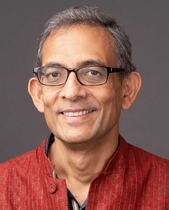
Poor Economics: Fight Global Poverty
Poor Economics is a gripping and disruptive portrait that upends the most common assumptions about how economics works. Why do the poor borrow to save? Why do they miss out on free life-saving immunizations, but pay for unnecessary drugs? This book answers these questions based on years of field research from around the world. Called "marvelous, rewarding" by the Wall Street Journal, the book offers a radical rethinking of the economics of poverty and an intimate view of life on 99 cents a day. Poor Economics shows that creating a world without poverty begins with understanding the daily decisions facing the poor.
"Marvelous, rewarding... the sheer detail and warm sympathy on display reflects a true appreciation of the challenges their subjects face. They have fought to establish a beachhead of honesty and rigor about evidence, evaluation and complexity in an aid world that would prefer to stick to glossy brochures and celebrity photo-ops. For this they deserve to be congratulated--and to be read."
― The Wall Street Journal
"Fascinating and captivating. Their work reads like a version of Freakonomics for the poor. There are insights into fighting global poverty from the remarkable and vital perspective of those whom we profess to serve. They remind us, I think, of our shared humanity and how at some fundamental levels we really do think alike."
― Fast Company
"To cut to the chase: this is the best book about the lives of the poor that I have read for a very, very long time. The research is wide-ranging. Much of it is new. Above all, Banerjee and Duflo take the poorest billion people as they find them. There is no wishful thinking. The attitude is straightforward and honest, occasionally painfully so. And some of the conclusions are surprising, even disconcerting."
"A compelling and important read... An honest and readable account about the poor that stands a chance of actually yielding results."
― Forbes.com
"Duflo and Banerjee tell these stories (of their randomised control trials) in a lovely new book called Poor Economics. As they admit, randomistas cannot answer some big questions--how to tackle food prices, for instance. But through lots of microstudies, they make a subtle case for one big argument: aid really can help poor people, provided the money follows the evidence."
― The Guardian
"The ingenuity of these experiments aside, it is the rich and humane portrayal of the lives of the very poor that most impresses. Both books show how those in poverty make sophisticated calculations in the grimmest of circumstances. Books such as these offer a better path forward. They are surely an experiment worth pursuing."
"Randomized trials are the hottest thing in the fight against poverty, and two excellent new books have just come out by leaders in the field. One is Poor Economics by Abhijit Banerjee and Esther Duflo. These terrific books move the debate to the crucial question: What kind of aid works best?"
― The New York Times
"Their empirical approach differs from policy discussions that base support or criticism of aid programs on a broad overview; instead they illuminate many practicable and cost-effective ways to keep children and parents living healthier and more productive lives. An important perspective on fighting poverty."
― Publishers Weekly



